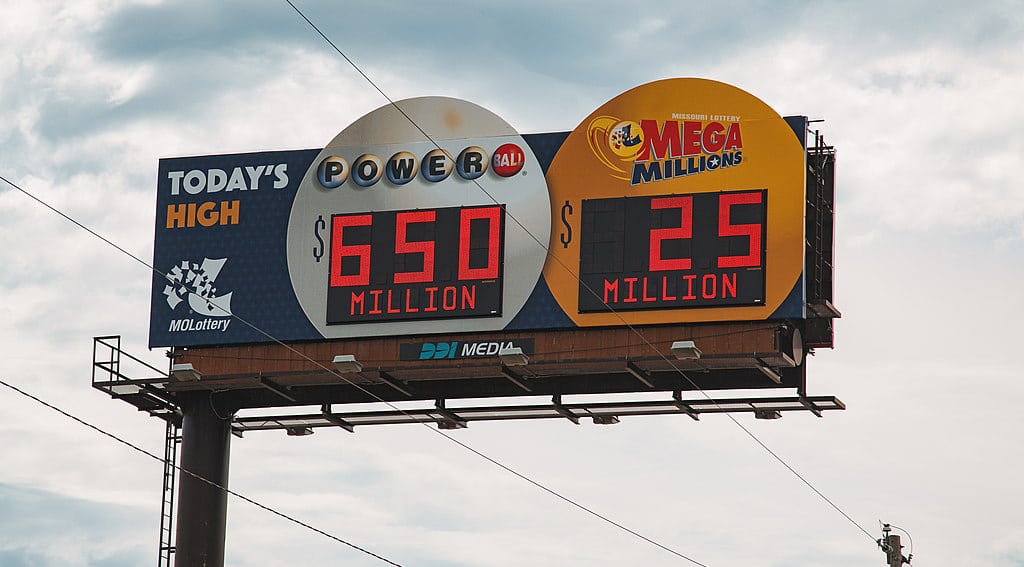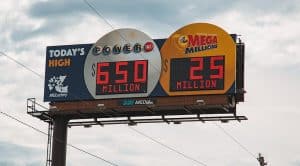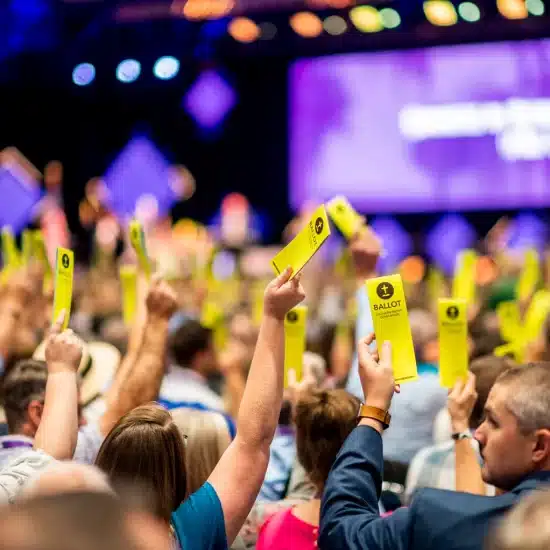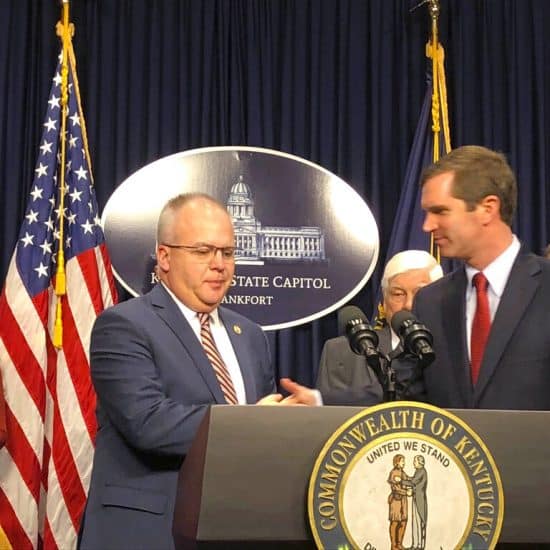
As states across the country shut down non-essential businesses in March and April, debates started about what should count as essential. Some obvious ones quickly emerged, like grocery stores and pharmacies. But states adopted different rules for places like hair salons and gun shops — though I’m not sure how you cut someone’s hair from six feet away and I also worry people think they can shoot a virus.

Brian Kaylor
But one unessential business apparently remained open as “essential” across the country: state lotteries.
We’ve seen some crazy responses to the virus. But near the top of the list must be continuing to sell lottery tickets that are handed off from one person to another, sometimes while people congregate nearby to buy their own “lucky” numbers that haven’t paid off for 20 years. While the odds of winning the jackpot is about 1 in 300 million, the odds of getting coronavirus in the U.S. by the end of April was about 1 in 300!
Some retailers complained in local reports about the foot traffic just for the lotto, and multiple lottery employees tested positive for coronavirus.
So, what’s the deal? That old god Mammon.
States target the poorest in our communities with lotteries. And apparently greed doesn’t take a break even during a pandemic.
This means efforts to help our struggling economy will be undermined by the very governments promising to help. Les Bernal, national director of the advocacy group Stop Predatory Gambling, wrote to each of the 45 governors of states with lotteries to urge a 30-day shutdown of the lotteries. He argued the action was needed since historical trends show poorer people are more likely to risk their money during economic recessions.
“Federal tax dollars are being sent to American families in order to put food on the table, make rent or mortgage payments, or provide for other daily necessities — not to subsidize state lotteries,” Bernal wrote. “There is a mountain of facts showing many citizens gamble on the lottery to change their financial condition, and even more so when they are feeling a sense of desperation.”

A billboard for the Powerball and Mega Millions lottery game prizes in Missouri. (Wikipedia, photograph by Tony Webster)
“State lotteries are one of the root causes why more than 60% of Americans had less than $1,000 in savings before the financial distress caused by the coronavirus pandemic,” he added. “State governments have turned a nation of small earners, who could be small savers, into a nation of habitual gamblers.”
But this is precisely why state lotteries exist. Not merely to raise money — that can be done through taxes. Rather, lotteries exist as a regressive tax that targets the poorest and most economically-depressed individuals, which then reduces the tax burden on the wealthy.
Research by the personal finance company Bankrate demonstrates that people who make less than $30,000 a year are nearly 50 percent more likely to pay the state through the lottery than other Americans — and those at that bottom income level spend nearly four times as much on lottery tickets.
And it makes sense. If you work fulltime and still cannot pay off your student debt, save up to buy a home, or provide basic needs for your children, you might be more willing to risk it for your only shot to get out of poverty.
But the lotteries don’t make billions of dollars for the states by paying out lots of winning tickets. The very governments that fail to ensure a living wage and equitable opportunities for their citizens then turn around and cash in on the desperate dreams of those who most need assistance. This isn’t just a robbing Peter to pay Paul situation. It’s robbing Peter so that Paul doesn’t have to pay back what he also already stole from Peter.
So, the lotteries continue since greed doesn’t practice social distancing. Instead, the greed of our state leaders continues to scratch-off the lives of the least of these among our neighbors. By declaring lotteries “essential,” our politicians say lives are not.
When we finally get through this pandemic, let’s not just return to our earlier, broken normal. Let’s find ways to make our communities better and healthier for all. A good place to start would be shutting down the lotteries.
Brian Kaylor is editor and president of Word&Way.





